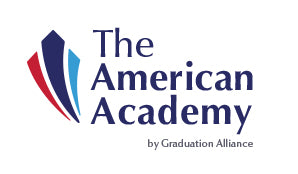What Are Elective Courses and How Can They Help Students?
Posted on July 30 2019
It makes sense that some high school classes are required. To some extent, after all, everyone has similar needs, like a basic fluency in reading and mathematics. To ensure every student has a similar background and develops a basic level of fluency across vital subjects, school districts and state education systems establish core curriculum that all students must take and pass.
But even though every student has some similar needs, everyone is different, too, with different interests, ambitions, and aptitudes — and that’s why elective courses are so important to a well-rounded education.
Course descriptions — usually a few sentences about each course — help learners understand if a course will be a good fit.
WHY COURSE DESCRIPTIONS ARE SO IMPORTANT FOR CHOOSING ELECTIVES
“In this class, students will learn the history, science and art of creating images through recorded light or other electromagnetic radiation. Through assigned readings and class lectures, students will come to better understand and appreciate the role of photography in modern life.”
Both of these descriptions could be for a class called “Photography,” but these two elective classes, as described by their course descriptions, might appeal to very different students.
MORE IS MERRIER, BUT QUALITY IS KEY
If you want to know what kind of experience you’ll have, especially when taking elective classes in a new school, the course description might not be enough. How engaged is the teacher? Does the teacher have training and experience in the subject? What do other students say about the course? These are the sorts of questions that it can be helpful to ask when choosing elective courses.
“Creative Writing” might sound like fun. But if your goal is to become an agent for professional athletes, perhaps “Sports and Entertainment Marketing” might be a better fit. Likewise, “Foundations of Firefighting,” “Introduction to Early Childhood Education,” and “Astronomy” might all be great courses that you’ll enjoy, but if you can only put one on your schedule, your career ambitions are likely the best deciding factor.
But even though every student has some similar needs, everyone is different, too, with different interests, ambitions, and aptitudes — and that’s why elective courses are so important to a well-rounded education.
It’s also why, whether you’re learning in a traditional school setting or in an online school, it’s important to have access to plenty of elective choices.
CHOOSING ELECTIVES FROM COURSE CATALOG
Most schools offer students (and prospective students) a course catalog, and most catalogs are separated into core (required) and elective classes.
While the names of elective classes like “photography,” or “music theory,” might be enticing, choosing a class based on a name is like choosing a candy bar you’ve never tried based only on what it’s called. Names like “Reese’s Peanut Butter Cups” and “Almond Joy” might offer a few clues about what is inside, but descriptions like “milk chocolate cup filled with peanut cream” and “sweetened shredded coconut topped with almonds and covered in milk chocolate” are a lot more helpful for making a choice.
Course descriptions — usually a few sentences about each course — help learners understand if a course will be a good fit.
Consider these two course descriptions:
“In this class, students will learn the history, science and art of creating images through recorded light or other electromagnetic radiation. Through assigned readings and class lectures, students will come to better understand and appreciate the role of photography in modern life.”
“In this class, students will learn the basic concepts of camera use, lens selection, and studio equipment. Through practice and feedback, they will learn about the role of aesthetic principles, composition, space, exposure, light, and color.”
Both of these descriptions could be for a class called “Photography,” but these two elective classes, as described by their course descriptions, might appeal to very different students.
MORE IS MERRIER, BUT QUALITY IS KEY
Having access to a diversity of electives is important — it helps ensure that students from a variety of backgrounds, interests and aptitudes will be able to find courses that appeal to them.
But an endless catalog of electives does not by itself guarantee a good school experience. That’s because not every elective class is created equal.
If you want to know what kind of experience you’ll have, especially when taking elective classes in a new school, the course description might not be enough. How engaged is the teacher? Does the teacher have training and experience in the subject? What do other students say about the course? These are the sorts of questions that it can be helpful to ask when choosing elective courses.
WHEN IT COMES TIME TO CHOOSE ELECTIVES COURSES, CHOOSE WISELY
After evaluating a course catalog, it might be tempting to choose classes that seem “fun.” Indeed, there is nothing wrong with choosing classes that seem like they will be enjoyable.
But remember: electives are part of your education, and your education is intended to help prepare you for life. So “fun” is an important consideration, but it’s also important to consider whether the class will help you learn about something that may help you achieve your further educational and career goals.
“Creative Writing” might sound like fun. But if your goal is to become an agent for professional athletes, perhaps “Sports and Entertainment Marketing” might be a better fit. Likewise, “Foundations of Firefighting,” “Introduction to Early Childhood Education,” and “Astronomy” might all be great courses that you’ll enjoy, but if you can only put one on your schedule, your career ambitions are likely the best deciding factor.
Further Reading:
• The Washington Post: “Why all high school courses should be elective.”
• Edutopia: “The Case for Electives in School.”
• The American Academy: “Eliminate Study Distractions”
• The American Academy: “Surprising Benefits of Online Courses”





